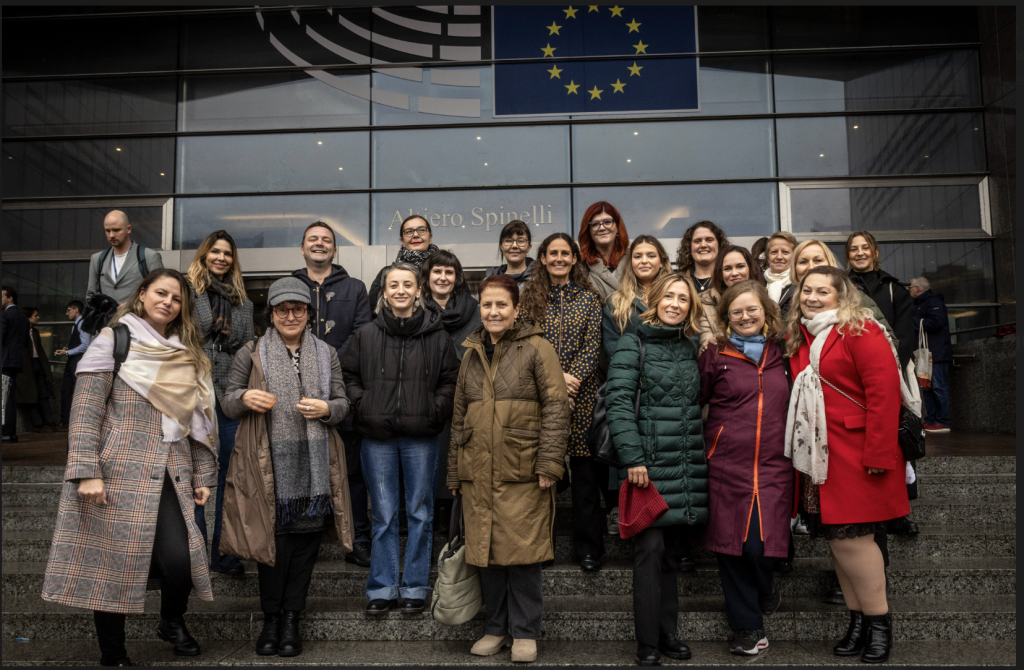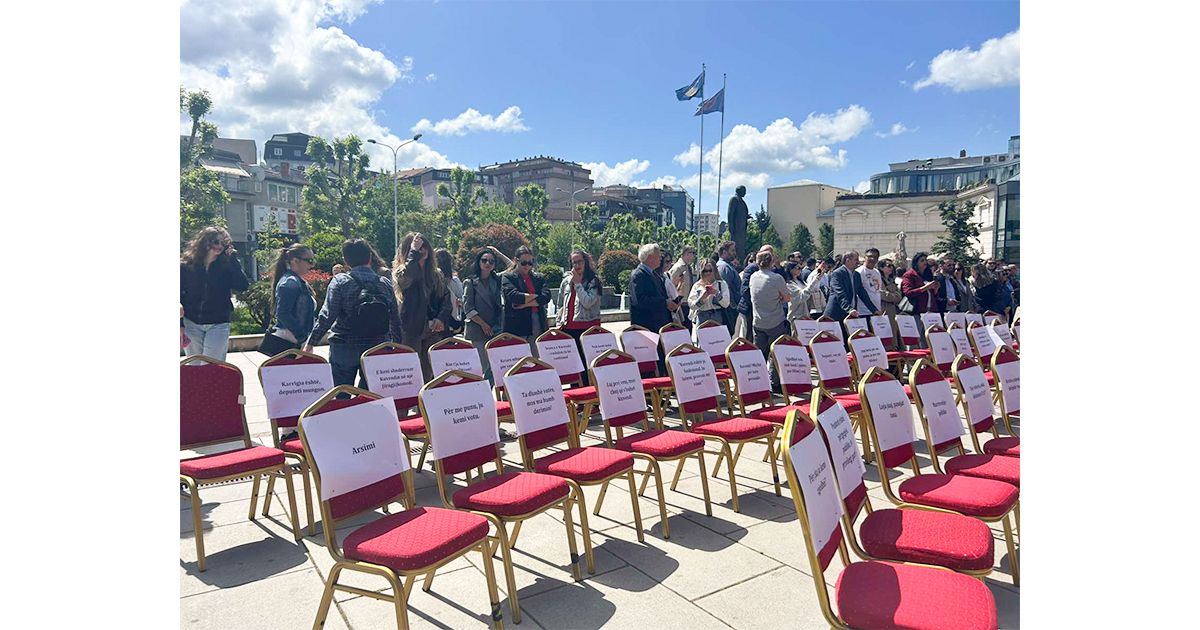Last week, the Kosovo Women’s Network (KWN), represented by Nicole Farnsworth, together with KWN members the Kosovar Gender Studies Center (KGSC) and Mitrovica Women Association for Human Rights (MWAHR), took part in the EU Advocacy Week, organised annually by the Kvinna till Kvinna Foundation in Brussels. The delegation advocated in solidarity with other activists from the Western Balkans region, engaging in meaningful and productive discussions with EU representatives and civil society partners, including from the European Commission, European External Action Service (EEAS), and European Council.
The Kosovo delegation met representatives of the European Commission to discuss its 2024 Kosovo Report. They suggested how the Report could have included an improved gender perspective, drawing from a Commentary on the Report. Concerns were raised about failures to harmonise the Law on Local Elections and the Law on General Elections with the Law on Gender Equality, ensuring women’s 50% representation in assemblies amid forthcoming elections; the need for further work to address gender-based violence, including cybercrime; the Kosovo Assembly’s failure to adopt the Civil Code to protect several fundamental rights; the Government’s withdrawal of the labour law from the legislative calendar despite its crucial implications for women labour force participation; the need to safeguard women’s reproductive health in several forthcoming laws; and opportunities for integrating gender considerations in reforms related to digitalisation, as per KWN’s EU and Swedish-funded evidence-based recommendations. KWN emphasised the need for greater transparency regarding ongoing amendments to public finance laws, towards ensuring that gender-responsive budgeting is adequately institutionalised via its inclusion in public finance and procurement laws, in line with global best practices. KWN also raised concerns about the gender-responsiveness of the Growth Plan and need for monitoring the quality of implementation.

Photo: Johanna de Tessieres
During the meeting with EEAS, the delegation discussed concerns regarding the lack of progress in the EU-facilitated dialogue between Kosovo and Serbia and women’s insufficient meaningful engagement in dialogue, particularly at a local level. Concerns over misinformation campaigns were also discussed.
KWN also met several other organisations to discuss opportunities for collaboration, particularly in forthcoming advocacy planned with the Gender Budget Watchdog Network, including with the European Women’s Lobby, Friends of Europe, Concord, ODI, and UN Women, supported by the Austrian Development Agency and Sweden.



